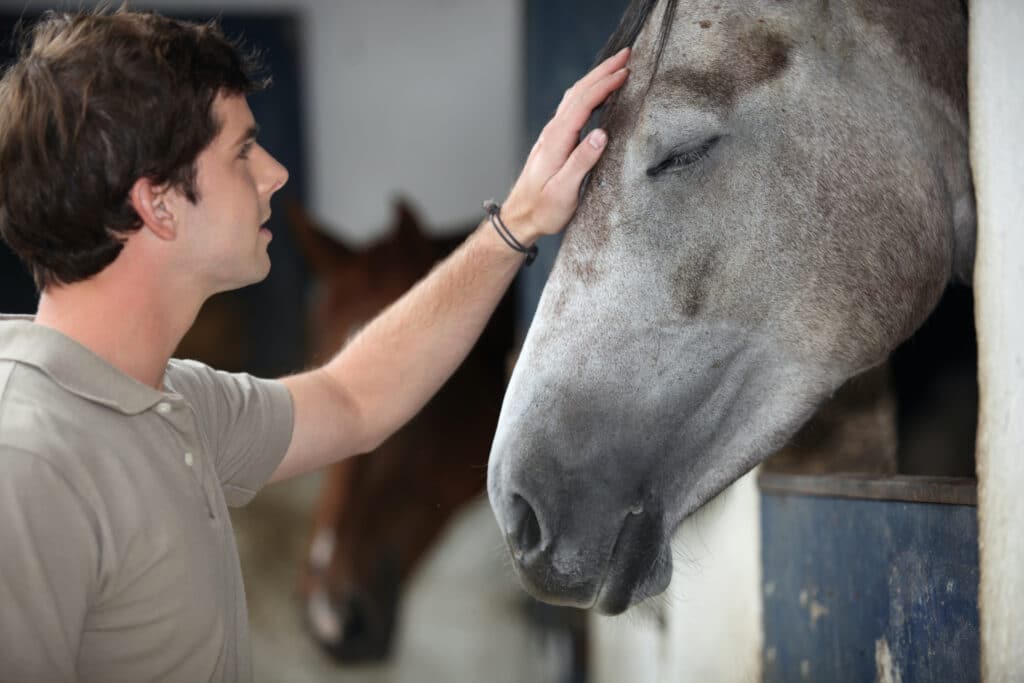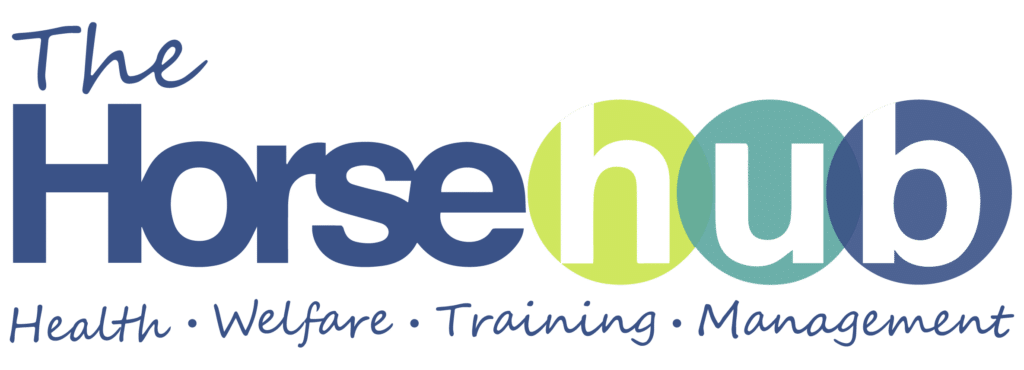Behaviour, Featured, Mental Health, Training and Management
How does controlled breathing calm a stressed horse?
We have all heard of the term ‘fight, flight, freeze’, indeed most people connected with horses have probably experienced all three scenarios. So, why is controlled breathing so effective in diffusing tension and stress in ourselves and our horses?
We were lucky enough to have two very experienced equestrian professionals, Fellow of the BHS Liz Eaton and Mental Performance Coach Debbie Hill, in conversation on our recent webinar ‘Confidence – how do our past experiences impact our communication with our horses?’, during which they answered our question about breathing, and many more.
What is controlled breathing?
Liz talked about encouraging her clients to practise controlled breathing – in through the nose for a count of 4, hold for 4, exhale through the mouth for 4, hold for 4, repeat. She finds it helps to ground the rider in the saddle, relax tension in the neck and shoulders, and encourage connection to the horse. But then like most of us, she was interested to know in more detail, why this is so effective.


The vagus nerve
Debbie introduced us to the vagus nerve, which is part of the parasympathetic nervous system – a network of nerves that functions without conscious thought from us. Part of its role is to balance the body’s fight, flight, freeze response, which is triggered by the sympathetic nervous system.
The vagus nerve is connected to every part of the body, including the nose. When our breathing is escalated, fast and stressed, the fight, flight, freeze response is triggered. When we control our breathing, the vagus nerve listens to the slower, relaxed breaths telling the body there is no need to panic so we calm down.
Debbie explained why our breathing affects our horses. In his book ‘The man who listens to horses’ Monty Roberts(1997), showed that horses in the wild if exiled from their herd, will stay within a certain distance of it (thought to be about ¾ mile). Within this vicinity the single horse can stay connected to the other horses, synchronising its physiology with theirs and feeling safe.
As we are part of our own horses’ herd, they naturally connect to us. They know our cars when we arrive at the yard, and probably a whole lot more that we have yet to understand. So, it is only natural, when we get there already stressed after a tough day at work, and we start to think about the spooky corner in the school or something else that might go wrong, our stress levels take a massive hike
.For this reason, both Liz and Debbie advise taking note of how we are feeling before we approach our horses and if needed, using controlled breathing techniques so the time together begins in a calm, connected manner – giving both the best chance to enjoy each other’s interactions.
Watch the webinar HERE
